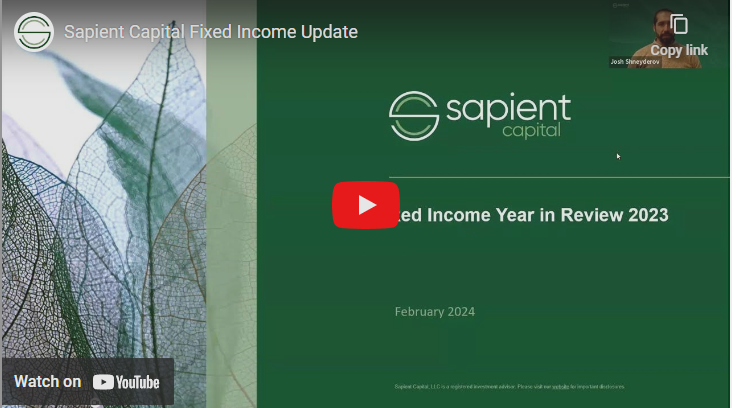A weird idea with surprisingly practical applications
[9 minute read/8 minute listen here]
“In business or out of it, there’s nothing unusual or shameful about making a mistake. Once. But to stumble twice against the same stone is a proverbial disgrace.”
-J. Paul Getty
I’m fortunate to know one of the best-performing hedge fund managers ever. I once asked him how he does it. He said that he meticulously identified and analysed all his errors with such obsessive precision that he rarely made the same mistake again. Whether it’s Buffett, Tudor Jones or Soros, a cursory Google will reveal hundreds of similar insights about the immense value of investors analysing their mistakes.
I recently encountered a new, and also potentially insane, understanding of mistakes that has been surprisingly useful and therapeutic.

Regression Analysis
My life seemed to be a series of events and accidents. Yet when I look back, I see a pattern.
– Benoît Mandelbrot
One of the most interesting books I’ve read so far this year is Dr Mona Sobhani’s Proof of Spiritual Phenomena. While her presentation of the evidence in support of psi phenomena was extremely compelling, I deliberately omitted one of her key findings. This was because it sounded… well… a bit too bonkers, even to my increasingly “open” mind.
In her book she tells the story of psychiatrist Dr. Brian Weiss. He unexpectedly experienced a range of inexplicable yet therapeutic experiences when patients regressed to past lives under hypnosis. Mona summarized his findings:
We have souls that incarnate on Earth to learn specific lessons through the events and relationships that make up a lifetime here. The point of learning the lessons is to evolve our souls and advance up through levels of spiritual being. With each advancing level we become more like the Source, or Godlike, which is apparently ideal and worth striving toward. At some point when you have become an advanced enough soul, like the Masters, you stop incarnating and help other souls.
Weiss claims he gleaned this information through direct contact with the “Masters”, these guides for other souls, while his patients were hypnotized.
Yes, I know, it sounds absurd to me too. Moreover, “everything happens for a reason” has always sounded like a glib and shallow expression, especially in the face of real suffering and tragedy.
But in her own research, Mona found the same recurring narrative of reincarnation, karma, and soul lessons. It emerged from from intuitives, mediums, patients undergoing past life regression therapy, children spontaneously remembering past lives, near-death experiences, as well as many other contexts. Children between the ages of 2-5 are allegedly especially permeable to past life experiences. Mona cites compelling work by Dr. Ian Stevenson of UVA. He studied 2,700 cases from six continents of children reporting past life memories. Some of the anecdotes are downright creepy:
There is often an odd correspondence between birthmarks and birth defects and locations of mortal wounds from past lives. For example, a woman who remembered a past life where she was killed by three blows from an axe to her back had three separate linear hyperpigmented scar-like birthmarks on her back. A boy from India named Ram recalled a past life where he was killed by a shotgun wound to the chest. He was able to give the name of the person from the past life, and Dr. Stevenson was able to locate the autopsy report of the deceased person. The location of the gunshot wound that was ascertained from the autopsy report matched that of the boy’s birthmark.
Yup, sounds crazy, or coincidental. My “skeptical immune system” really kicked in here.
And yet… in the months since I first learned about soul lessons, I’ve found the concept to be both comforting and surprisingly useful.
In markets, a common suggestion is to maintain a trading or investment journal where you record not only your trades but also the thought processes, emotions, and reasoning behind your decisions. This can help you retroactively identify patterns of behavior and cognitive biases that might be leading you to make future mistakes. But it’s still wickedly hard to see your own blind spots: it turns out that learning about biases doesn’t actually tend to make us less biased.1
A wealth manager isn’t the same as a therapist, but both can help you identify patterns of repeated mistakes. Our industry is deservedly obsessed with eliminating behavioural bias. This is when it really helps to have someone else acting as a mirror for your decisions.
Trigger Warning
I now examine my own life for recurring patterns or incidents, and ponder if I was put in that position in order to learn a particular lesson. I recently read a meme to the effect that “the universe” only gives you 3 answers:
- Yes.
- Not right now.
- It keeps happening because you’re not learning the lesson.
The beatings will continue until the lesson has been brought into your awareness and resolved. This week I heard the expression “you can only see God looking backwards” for the first time, and it immediately made sense.
But what if you can’t consciously identify the lessons you’re supposed to learn? One simple way is to pay close attention to the times you seem in unconscious friction with the world. I recently read an excellent short article from entrepreneur Scott Britton. He suggests we try to notice whenever we’re disturbed, triggered or resisting what’s unfolding in our lives.
Nothing has had a bigger impact on my consciousness journey than working with my response to life.
You don’t have to go on a retreat.
You don’t have to change jobs.
You don’t have to ingest any substances.
All you have to do is begin noticing and become the chief investigator of your inner space.
When you start to work with life this way, the responsive reality brings you a steady stream of continuous growth opportunities to your doorstep every single day. This is your curriculum which is perfectly orchestrated. All you need to do is pay attention and make it a priority to get the lessons. And in the absence of receiving them, my experience is the lesson will keep coming until you finally get it. Over time the compounding growth that comes with this type of daily transformation is remarkable.
This is yet another illustration of a critical idea: a sense of friction is an indicator that your model of the world needs to be updated. I have found it especially powerful when my response to something trivial, such as my wife not listening to me or being late for a plane, is disproportionate to the trigger. If I can’t consciously explain a recurrent pattern of irritation, it must have an unconscious cause. It almost always points to a deeper issue (see Sasha Chapin’s article below for a fascinating exploration of practical approaches to this process).
Whether or not it’s true, the idea of soul lessons has also helped me to forgive my own abundant mistakes while also reframing periods of suffering. One of my most healing realizations is that the more you cringe about something in your past, the more you must have grown in the interim. Otherwise you wouldn’t cringe! Your shame is a lesson, a pain that stops you from repeating the same mistake. This means you are free to stop torturing yourself, you just have to make sure you’re acting differently. The good news is that the lesson is always roughly the same:
According to the Masters, the purpose of life was to fully comprehend compassion, nonviolence, love, non-judgment, non-prejudice, patience, generosity, charity, and hope. We are supposed to become aware that we are all interconnected, that energy connects us all, and that we never really die.
In Groundhog Day, it’s love and virtue that finally frees the egotistical Phil Connors from his infinite time loops.
In finance, the benefits of incorporating feedback are relatively obvious: if you reduce your mistakes, you’ll become wealthier. If you learn your specific soul lessons, presumably your life generally improves. But by far the weirdest outcome of this inquiry process for me is that my outer life reflects evolutions in my inner life in unusually synchronised ways. A primary character flaw of mine is to withdraw from life when I’m hurt. So every time I open towards the pain rather than close, I’ve been immediately rewarded.
Life creates situations that push you to your edges, all with the effect of removing what is blocked inside of you.
-Michael Singer
Related reading and listening
In case you missed it, earlier this week Sapient Capital’s Founding Partner Tom Pence offered his latest thoughts on the macro and markets. You can read or listen here.
- Read. The Miraculous Responsive Reality by Scott Britton (29 minute read).
- Why read. This is a longer-form article linked to above. The idea of your inner and outer lives mirroring each other is a simple concept that seems to go far deeper than I ever expected. It starts simple and obvious, and gets weird.
- I began to notice that there seemed to be an unmistakable choreography between the events of the outside world and what was happening on the inside. At first, I only saw glimpses of this that were easy to shrug off. But over time this began to happen with increasing frequency. One way this has revealed itself is unexplainable synchronicity. Another way is favorable circumstances appearing when I’d choose to act ethically and in alignment with my deepest inner desires vs. things unfolding unfavorably when I was unethical or out of alignment.
- I began to notice that there seemed to be an unmistakable choreography between the events of the outside world and what was happening on the inside. At first, I only saw glimpses of this that were easy to shrug off. But over time this began to happen with increasing frequency. One way this has revealed itself is unexplainable synchronicity. Another way is favorable circumstances appearing when I’d choose to act ethically and in alignment with my deepest inner desires vs. things unfolding unfavorably when I was unethical or out of alignment.
- Read. How I Attained Persistent Self-Love, or, I Demand Deep Okayness For Everyone by Sasha Chapin (54 minute read, contains abundant profanity)
- Why read. This was a long but excellent read recommended by my friend Frank. I was a few minutes into reading it this week when I realised it was a pleasingly specific examination of techniques for introspection. These kinds of coincidences now happen so regularly I’m not even weirded-out by them anymore.
- Every time I’d have some sort of weird inner tension—which was often—I would try to introspect, talk to different parts of myself, try to bring myself into deeper and deeper harmony, accept whatever discordant bits of consciousness I would normally reject. Nightly, before sleep, I’d sit up in bed and do a little mental inventory of the day’s emotional activities, and perform relevant introspection.
- Every time I’d have some sort of weird inner tension—which was often—I would try to introspect, talk to different parts of myself, try to bring myself into deeper and deeper harmony, accept whatever discordant bits of consciousness I would normally reject. Nightly, before sleep, I’d sit up in bed and do a little mental inventory of the day’s emotional activities, and perform relevant introspection.
- Listen. Invest Like The Best: Rick Buhrman and Paul Buser – Find Your X, Nurture Your N (1 hour 58 minute listen)
- Why listen. This was recommended by lots of people and it’s great! Rick and Paul spent over a decade managing the public equity portfolio at Notre Dame’s Endowment before leaving in 2020 to set up a permanent capital vehicle called Sator Grove. Their insights are resonant with our own thinking.
- “Our conviction here is based on our own experience and through the study of human nature and the history of civilizations, and that’s, that in the final analysis and with the fullness of time, love is actually the most enduring force in the universe.”
The information provided is for educational and informational purposes only and does not constitute investment advice and it should not be relied on as such. It should not be considered a solicitation to buy or an offer to sell a security. It does not take into account any investor’s particular investment objectives, strategies, tax status or investment horizon. You should consult your attorney or tax advisor.
The views expressed in this commentary are subject to change based on market and other conditions. These documents may contain certain statements that may be deemed forward looking statements. Please note that any such statements are not guarantees of any future performance and actual results or developments may differ materially from those projected. Any projections, market outlooks, or estimates are based upon certain assumptions and should not be construed as indicative of actual events that will occur.
1 I strongly recommend this incredibly interesting review of Julia Galef’s Scout Mindset in Astral Codex Ten
.


